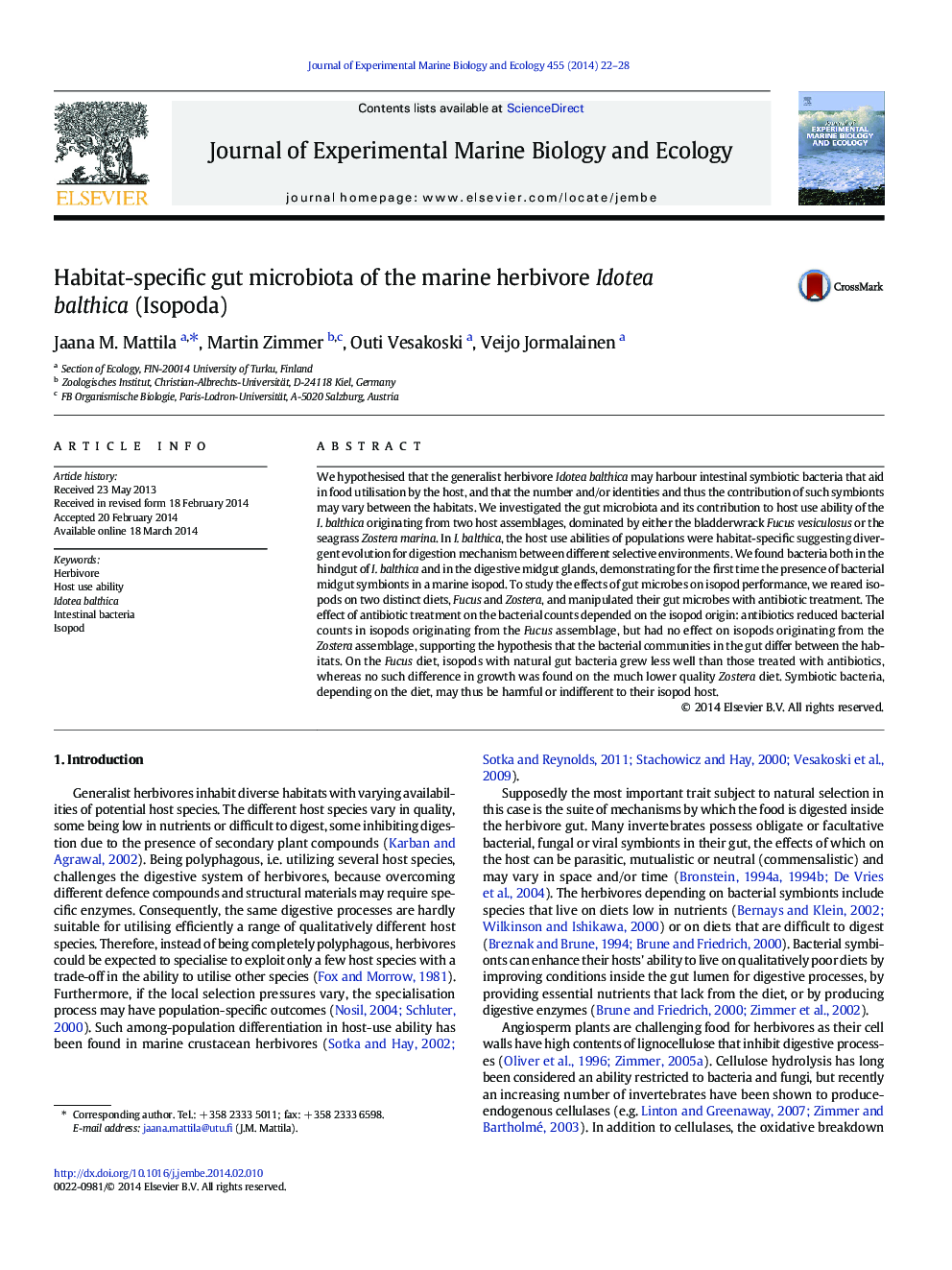| کد مقاله | کد نشریه | سال انتشار | مقاله انگلیسی | نسخه تمام متن |
|---|---|---|---|---|
| 6304165 | 1618420 | 2014 | 7 صفحه PDF | دانلود رایگان |

- The marine isopod species carries symbiotic bacteria in their intestinal tract.
- Isopods from distinct habitats harbour different bacterial communities.
- Bacteria are harmful or indifferent to their isopod hosts depending on the diet.
- Bacteria may contribute to digestive processes by producing digestive enzymes.
We hypothesised that the generalist herbivore Idotea balthica may harbour intestinal symbiotic bacteria that aid in food utilisation by the host, and that the number and/or identities and thus the contribution of such symbionts may vary between the habitats. We investigated the gut microbiota and its contribution to host use ability of the I. balthica originating from two host assemblages, dominated by either the bladderwrack Fucus vesiculosus or the seagrass Zostera marina. In I. balthica, the host use abilities of populations were habitat-specific suggesting divergent evolution for digestion mechanism between different selective environments. We found bacteria both in the hindgut of I. balthica and in the digestive midgut glands, demonstrating for the first time the presence of bacterial midgut symbionts in a marine isopod. To study the effects of gut microbes on isopod performance, we reared isopods on two distinct diets, Fucus and Zostera, and manipulated their gut microbes with antibiotic treatment. The effect of antibiotic treatment on the bacterial counts depended on the isopod origin: antibiotics reduced bacterial counts in isopods originating from the Fucus assemblage, but had no effect on isopods originating from the Zostera assemblage, supporting the hypothesis that the bacterial communities in the gut differ between the habitats. On the Fucus diet, isopods with natural gut bacteria grew less well than those treated with antibiotics, whereas no such difference in growth was found on the much lower quality Zostera diet. Symbiotic bacteria, depending on the diet, may thus be harmful or indifferent to their isopod host.
Journal: Journal of Experimental Marine Biology and Ecology - Volume 455, June 2014, Pages 22-28